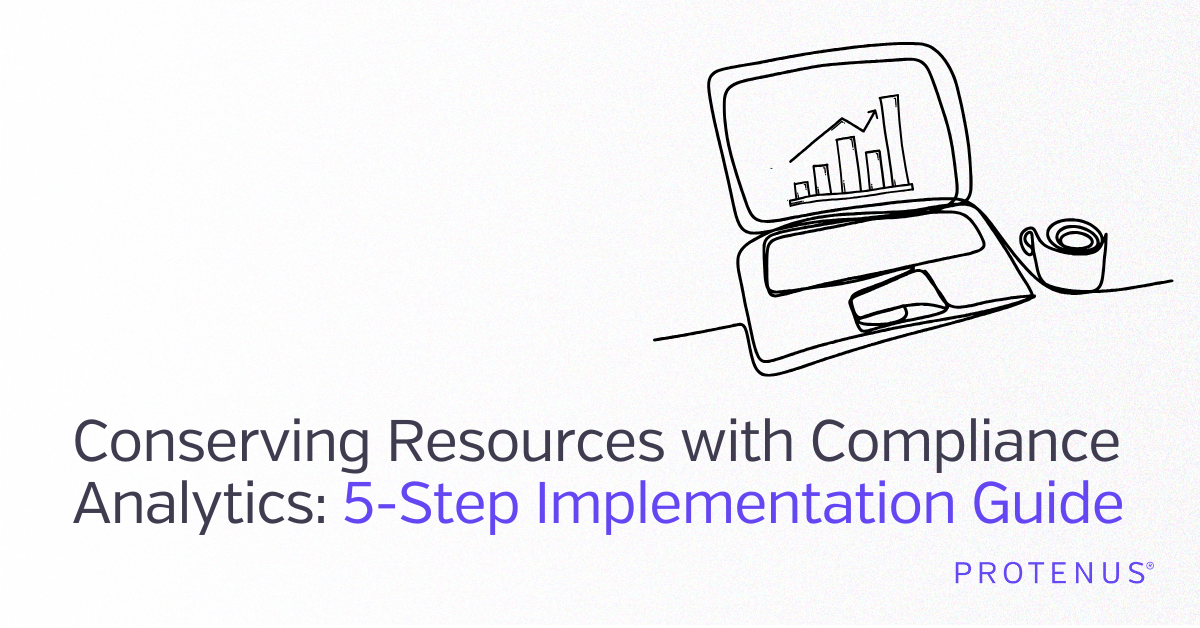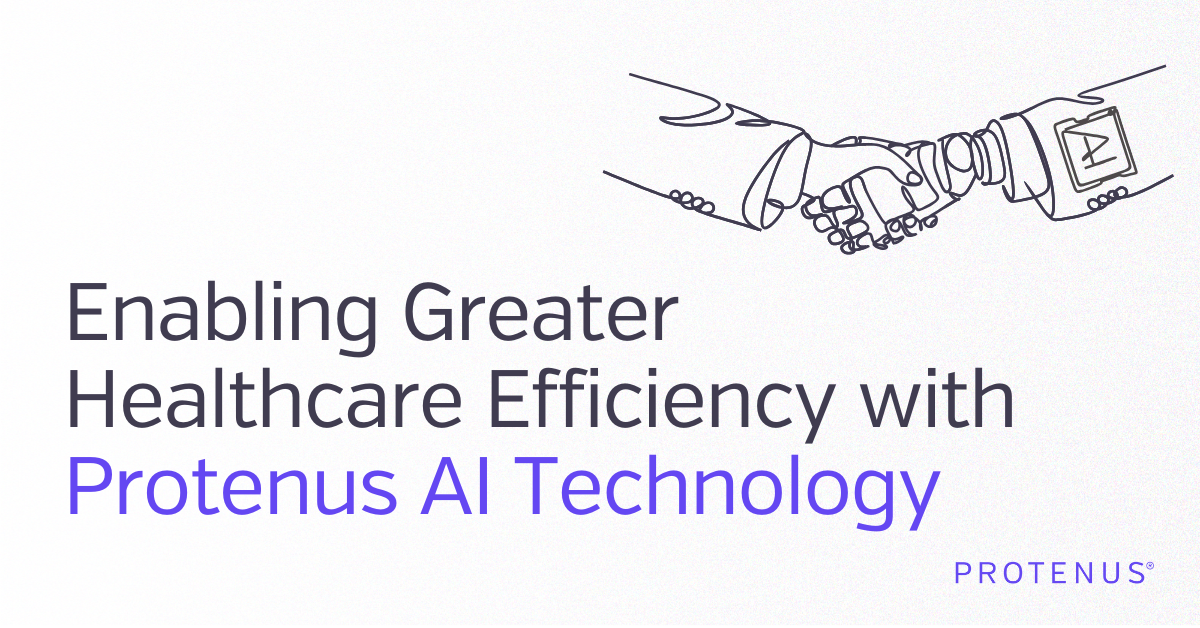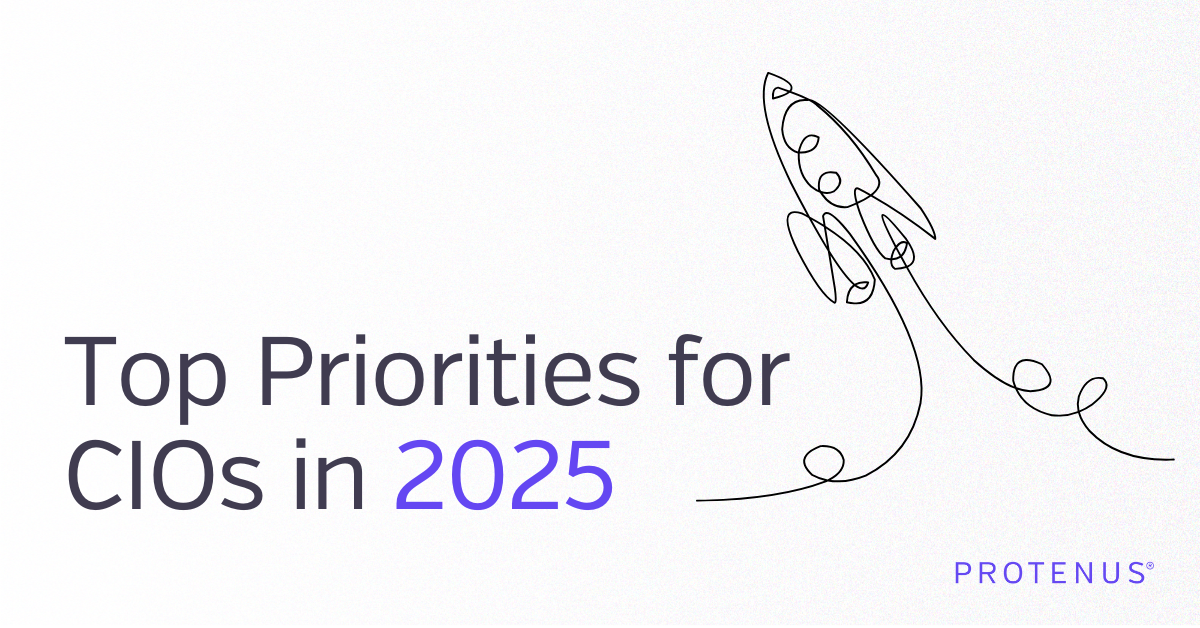Share this

One Cancer Organization's Journey Toward Key Compliance Efficiencies
by Protenus on October 6, 2021
In the throes of staffing and budget constraints, healthcare organizations are looking to optimize efficiencies and resource utilization in any way they can.
For one cancer center in the Southeast region, which comprises a full-service hospital licensed for more than 200 beds, these challenges made streamlining compliance operations a top priority.
Download our new case study, "Cancer Center in the Southeast Drives Efficiencies with AI-Powered Compliance Analytics," for free insights.
The compliance experts responsible for protecting a large quantity of highly sensitive and personal patient data were noticing shortcomings in the legacy solution they leaned on to carry out this critical function. The de-centralized and manual processes surrounding the tool made it difficult to keep up with a high volume of case investigations, potentially allowing violations to go unchecked and opening the organization up to substantial risk.
Overloaded in the absence of automation
For instance, the legacy solution surfaced a high number of cases for investigators to review, such that identifying truly suspicious activity was like finding a needle in a haystack. In addition, cases were generated in a flashcard-type format that lacked prioritization or complete context necessary to resolve the case. Instead of having all relevant information in a single place, investigators had to track down and export data from multiple sources, then manually combine and analyze the data.
Because the legacy solution lacked important functionalities, a single case review consumed as much as 40 minutes of an investigator's time. And when it came time to analyze trends and report performance to stakeholders, once again, compliance experts had to spend time manually exporting insights. They began to wonder why the legacy tool, which they invested valuable time and money in, was not doing the heavy lifting on these repetitive processes and needed reports.
Facilitating fast and accurate case determinations
The compliance department came to the realization that capturing, analyzing, and accurately prioritizing 100 percent of system accesses within the organization — then expediently investigating and resolving cases — would require augmenting their team's expertise with an advanced analytics solution. A thorough evaluation led the cancer center to implement Protenus Privacy on Autopilot, a module on the Protenus healthcare compliance analytics platform, in early 2020.
Unlike the legacy tool it replaced, Protenus utilizes artificial intelligence and advanced analytics to automatically prioritize cases that pose the highest risk to the cancer care organization, then elevate these cases for human expert review. With each case resolved as a violation, machine learning technology refines the analytics' ability to differentiate between proper and improper accesses, allowing improper accesses to be detected, prioritized, and pushed to the cancer center's compliance experts with 96 percent accuracy. Largely eliminating time spent investigating "false positive" cases has been a huge win for the team as it works to effectively maintain an organizational culture of compliance.
In part because high-risk cases are surfaced on the Protenus platform's intuitive user interface alongside all necessary context to facilitate quick investigation and resolution, the compliance department has also achieved a per-case time savings of about 70 percent. Investigators now only need between 5 and 15 minutes, on average, to resolve a single case. Ultimately, shorter case review times mean faster action against privacy violations, and faster overall risk mitigation.
Finally, the Protenus platform's automated reporting capabilities and plain-language alerts make insights accessible to any organization stakeholder, inside or outside the compliance department. No longer forced to waste valuable time manually assembling and exporting reports, and empowered with the information needed to protect patients, team members have greater job satisfaction — and more bandwidth to focus on department priorities that truly warrant their expertise.
Starting at the finish line
As this cancer center came to realize, complete privacy monitoring cannot realistically be achieved without the powerful combination of human expertise and artificial intelligence. To both successfully review the high volume of accesses occurring daily and immediately identify anomalies that suggest impropriety, compliance experts had to do away with the manual inefficiencies intrinsically tied to their legacy solution.
In swapping the outdated technology for Protenus, compliance experts gained the ability to metaphorically start at the finish line. The solution works continuously in the background to monitor all accesses, prioritize the most suspicious cases with impeccable accuracy, and push critical information to end-users so they can hit the ground running.
Protenus makes this possible because we understand that in today's healthcare environment — and with patients' privacy at stake — compliance departments have no room to waste time, expertise, or other resources.
For more details on how a Cancer Center in the Southeast leveraged Protenus privacy monitoring capabilities, download the free case study.
Share this
- December 1, 2024 (3)
- November 1, 2024 (1)
- October 1, 2024 (2)
- September 1, 2024 (1)
- August 1, 2024 (1)
- July 1, 2024 (1)
- June 1, 2024 (1)
- May 1, 2024 (1)
- March 1, 2024 (2)
- February 1, 2024 (3)
- January 1, 2024 (1)
- December 1, 2023 (1)
- November 1, 2023 (3)
- October 1, 2023 (3)
- September 1, 2023 (1)
- August 1, 2023 (1)
- July 1, 2023 (2)
- April 1, 2023 (1)
- March 1, 2023 (1)
- February 1, 2023 (1)
- December 1, 2022 (3)
- November 1, 2022 (3)
- October 1, 2022 (1)
- September 1, 2022 (1)
- August 1, 2022 (2)
- June 1, 2022 (4)
- May 1, 2022 (5)
- April 1, 2022 (1)
- March 1, 2022 (4)
- February 1, 2022 (3)
- November 1, 2021 (2)
- October 1, 2021 (3)
- September 1, 2021 (3)
- August 1, 2021 (3)
- July 1, 2021 (4)
- June 1, 2021 (2)
- May 1, 2021 (2)
- April 1, 2021 (2)
- March 1, 2021 (5)
- February 1, 2021 (1)
- January 1, 2021 (1)
- December 1, 2020 (1)
- November 1, 2020 (2)
- October 1, 2020 (2)
- September 1, 2020 (3)
- August 1, 2020 (2)
- July 1, 2020 (2)
- June 1, 2020 (6)
- May 1, 2020 (3)
- April 1, 2020 (4)
- March 1, 2020 (2)
- February 1, 2020 (4)
- January 1, 2020 (2)
- December 1, 2019 (2)
- November 1, 2019 (1)
- October 1, 2019 (1)
- September 1, 2019 (1)
- August 1, 2019 (1)
- June 1, 2019 (1)
- April 1, 2019 (1)
- February 1, 2019 (1)
- January 1, 2019 (1)
- December 1, 2018 (2)
- November 1, 2018 (2)
- October 1, 2018 (2)
- September 1, 2018 (3)
- August 1, 2018 (1)
- July 1, 2018 (2)
- June 1, 2018 (2)
- May 1, 2018 (1)
- April 1, 2018 (1)
- March 1, 2018 (2)
- February 1, 2018 (6)
- January 1, 2018 (2)
- September 1, 2017 (2)
- August 1, 2017 (2)
- June 1, 2017 (2)
- May 1, 2017 (1)
- April 1, 2017 (1)
- March 1, 2017 (2)
- February 1, 2017 (5)
- January 1, 2017 (2)
- December 1, 2016 (3)
- November 1, 2016 (5)
- October 1, 2016 (4)
- September 1, 2016 (8)
- August 1, 2016 (4)
- July 1, 2016 (4)
Subscribe by email
You May Also Like

Conserving Resources with Compliance Analytics: A 5-Step Implementation Guide

Enabling Greater Healthcare Efficiency with Protenus AI Technology

.png?width=1000&height=140&name=Bluesight%20%2B%20Protenus%20Logo%20%20(1).png)
